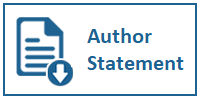STATUS-QUO BIAS IN VALUING INVESTMENT ASSETS: A BEHAVIOURAL EXPERIMENT ON GAIN OR LOSS
DOI:
https://doi.org/10.31937/manajemen.v13i2.2155Abstract
Abstract - Nowadays, human decision making is one of the most important area in financial & investment research. Previously, financial researches failed to detect market anomalies, which leads to investigation on investor decision-making process. In the decision-making process, behavioral economist found that the way people assessed value of the assets was completely different than utility theory at that time. Therefore, prospect theory was born to answer several biases in human thinking patern. The novelty of this research is to bring behavioral economics perspective on investment study in Indonesia as yet there is only very small numbers of investment study on this topic. This research was conducted based on experimental basis research. There were two conditions that were tested on the subjects: the first one was win condition when the stock price increased over the given time frame and losing condition when the stock price decreased over the time and subjects were asked to fill the questionnaire based on their preference on the given scenario. The result shows that status-quo bias is exist on both conditions and confirms the complexity on how these students make an investment decision. Several implications for investment business practice are also discussed in the final section
Keywords: ; Endowment Effect; Investment Valuation; Prospect Theory; Risk Preference; Status-Quo Bias
Downloads
Downloads
Published
How to Cite
Issue
Section
License
Authors retain copyright and grant the journal right of first publication with the work simultaneously licensed under a Creative Commons Attribution-ShareAlike International License (CC-BY-SA 4.0) that allows others to share the work with an acknowledgement of the work's authorship and initial publication in this journal.
Authors are able to enter into separate, additional contractual arrangements for the non-exclusive distribution of the journal's published version of the work (e.g., post it to an institutional repository or publish it in a book), with an acknowledgement of its initial publication in this journal.















